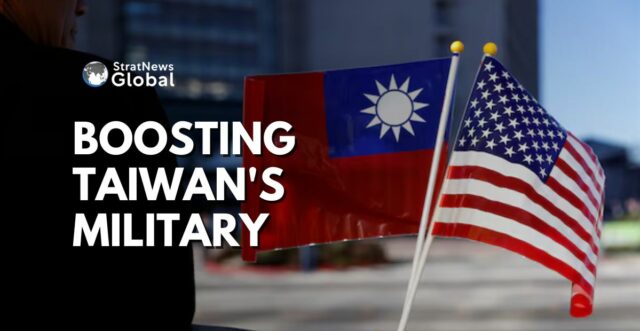US President Joe Biden on Sunday approved $567 million in defense support for Taiwan, the White House said, the latest move by the United States to boost the island’s military in the face of rising tensions with China.
US Is Taiwan’s Important Backer
The United States is Taiwan’s most important international backer and arms supplier even in the absence of formal diplomatic ties. China has repeatedly demanded Washington stop selling weapons to Taipei, which it claims as its territory.
In a statement, the White House said Biden had delegated the Secretary of State the authority “to direct the drawdown of up to $567 million in defense articles and services of the Department of Defense, and military education and training, to provide assistance to Taiwan”.
It provided no further details.
US Arms Sale To Taiwan
From the 1950s to the 1970s, Taiwan received substantial U.S. economic and military aid until the normalization of relations with China in 1979.
In late 2022, Congress passed legislation to restore military aid to Taiwan, allowing up to several billion dollars annually in loans and grants, and enabling Taiwan to directly purchase weapons from U.S. defense stocks for the first time.
In April, Biden signed a hard-fought bill into law that provides billions of dollars of new U.S. aid to Ukraine for its war with Russia, as well as for Israel and Taiwan.
Since 1950, the United States has provided Taiwan with nearly $50 billion in defense equipment and services, including several significant sales in recent U.S. administrations.
As of August 2024, Taiwan was reportedly awaiting over $20 billion in U.S. weapon deliveries, which include dozens of F-16 fighter jets that were approved for sale in 2019.
China, which views democratically-governed Taiwan as its own territory, has ramped up military and political pressure over the past five years to assert its claims, which Taipei strongly rejects.
(With input from Reuters)





